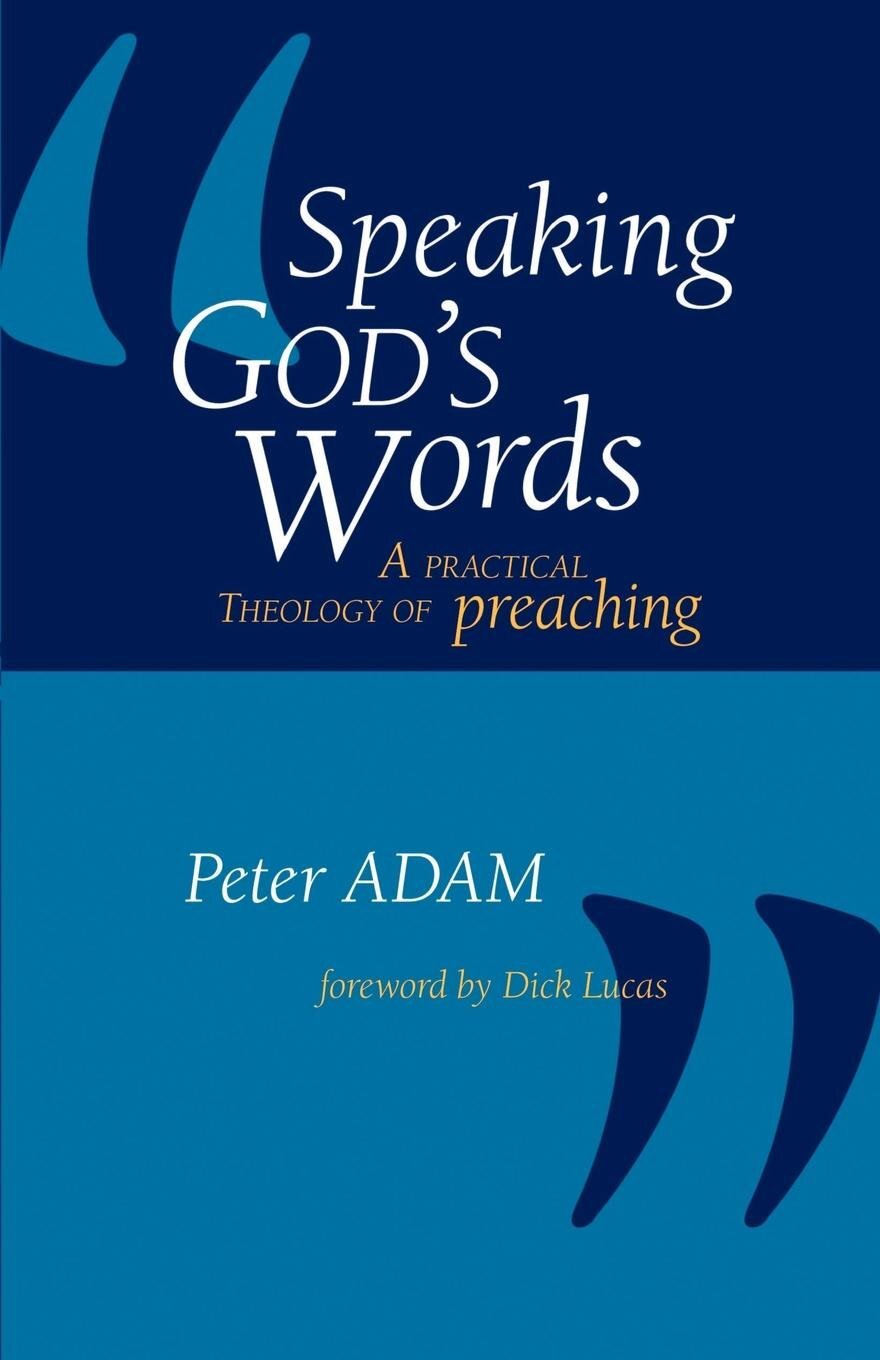A Review By Raphael Mnkandhla
The book by Peter Adams on preaching offers a well written theological and practical call to preach the gospel faithfully. Preaching finds it power and sustainability in the thoughts behind it, even more, God’s thoughts behind it. The aim of this book is to provide a robust practical theology of preaching as part of the ministry of the Word in the local church. A robust theology of preaching is needed because most climates are against preaching and preaching is demanding work needing time and energy for preparation and delivery. This book is a call to confidence on God’s call to preach.
Part one lays down three biblical foundations of preaching intending to provide the basis for part two where he deals with preaching as ministry of the word, the use of scripture, the purpose of the preacher and the demands of preaching.
Chapter one deals with the idea “God has spoken” , his words remain powerful, and that without historic revelation in words there can be no ministry of the Word. Adam shows multiple places where God has spoken audibly, into the minds of people and through his son. God speaking is fundamental to biblical faith and preaching hangs on this. “If God is dumb, we may speak, but we cannot speak God’s words, for there are none to speak.”
Chapter two, deals with the second foundation for preaching, “It is written”. Adam demonstrates that what we have in scripture is the revealed and preserved words of God. Preservation is captured in the term “inscripturation” a method used to preserve the words for future generations. “Fixation” is another important term which describes the belief that God’s revelations is fixed or settled at a particular time for the future. The chapter traces the writing ministry of the people of God in the Old Testament and shows that the New Testament is a product of the inscripturation of the revelation in and about Jesus Christ. Preaching also hangs on this that God has preached first through his written word.
Chapter three explores the third foundation “Preach the Word” that preaching depends not only on having a God-given source, the Bible, but also a God-given commission to preach, teach and explain it to people and to encourage and urge them to respond. Preachers are convinced that God has given them a message to pass on to others. Adam uses Moses’, the prophets’, John the Baptist’s, Jesus’ and the disciples’ preaching ministry as examples of God giving his word to his servant to pass to others.
God has spoken, it is written, and God has instructed us to Preach the Word through the ministry of teaching elders. Adam then provides the implications of these three foundations namely that God’s words are effective, they are part of his self-revelation, he has appointed the ministry of the Word, preserving his words for us today, uses human agents in giving his revelation and preserving his words and that his revelation is both historical and contemporary.
Chapter four looks at preaching as one of the many ministries of the Word, and aims at learning about Preaching. In scripture, looking at Jesus and Paul, the church’s ministry can be looked at as evangelizing unbelievers, training and equipping the saints, counselling, public reading of scripture, private bible reading and preaching. Adam shows this through the lives of John Calvin and Richard Baxter.
Chapter 5, “The preacher’s Bible”, examines eight key issues which bear upon the relationship between the Bible and preaching, in order to see the practical implications of the Bible’s nature and how it affects the way we prepare our sermons and preach.
First, Adam attempts to clarify the relationship between the content of Scripture and preaching. Examining Peter’s sermon in Acts 2, and showing the use of the Old Testament, he claims the Scriptures were a means to an end. His recommendation to how Scripture is used in today’s Sermons is:
“The purpose of our teaching and preaching the Bible is to explain and commend the good news of God, the gospel of God, the gospel of God’s grace, the Kingdom of God and the Lord Jesus.”
The preaching of scripture then provides a means to an end, that is, preaching and teaching Christ. The message is the end and the Bible is the means.
Second, on the effectiveness of Scripture, Adam argues that God will use Scripture as he promised, and still speaks through its message. Third, just as the nature of scripture is propositional by teaching truth by parable, history and sayings, Adam recommends that our preaching should reflect this variety.
Fourth, a firm theology of God’s authorship and the purpose of scripture and our place in salvation will convince preachers that where Scripture speaks, God speaks. Arguing for scriptures relevance, Adam uses God’s unlimited horizon that he had the future in mind and is still alive. Fifth, Adam shows the ways to misuse Scripture and encourages preachers to teach the content of scripture, be faithful to its purpose, model its use and allow the congregation to test what we say about it.
Sixth, preachers are to respect both the divine and human authorship of scripture. Seventh, the preacher can derive immense strength from biblical theology: the belief that the bible is God’s given, theological, self- interpreting, and cohesive. This chapter concludes by challenging preaching from the words of scripture for it to be considered the message of God.
Chapter Six discusses the purpose of the preacher. His important task is to see preaching as a means to an end, its to serve so he shouldn’t ask, “Have I preached well?” but “Have I served God and Christ, and have I served the people of God?” Serving God means that the preacher will respect God, his words and his people, believe that God who is active and present is going to work through our Christian ministry and pray that he does so.
This kind of preaching allows the text to set the agenda, yet also it will faithfully have application and exhortation for the congregation through what Adam calls a ministry sentence for every sermon. The rest of the chapter focuses on the example of John Calvin in the priority of servanthood in ministry in both his theology and the practice of preaching. His theology is outstanding especially the one on God and the preacher, most theologies on preaching exclude the preacher and focus on the text and the act of preaching not the point on why God chooses to use humans.
Chapter Seven deals with the demands of preaching. It demands love and obedience to God and Christ, commitment to the truth of God, love for people, hard work, relating to the real world in which people live, suffering and a life of ministry. A ministry which is so central in God’s mind and to God’s plan must surely have the honor and glory of God and of Christ as its chief aim.
Preaching then is an endeavor that depends on God from preparation to delivery. He demonstrates this using John Owen argument that the preaching ministry needed spiritual gifts of wisdom or knowledge, skill to divide the Word, skill to apply it and a gift of utterance. The demand upon the preacher is to see God as his ruler and judge instead of the people, to have a commitment to the Word of God on and off the pulpit, and a great love for people, of which Paul was a great example.
Adam’s suggestions for preaching preparation and educating the congregation are very useful for readers that have not nailed rhythms of preparation that don’t still makes sure other ministry responsibilities are neglected. Adam argues that though monologue in form, true preaching should be a dialogue in content; this means that our preaching ought to be deeply aware of the issues we ourselves and people face. Our sermons also need to be both intellectual and emotional - a demand for the preachers to work hard on making sermons both challenging and also pleasant to hear. Preaching is not only to be demanding to the preacher but also to the hearers and both these have the promise of sufficient grace from God to energize and sustain them.
The reader’s response
The author accomplishes that which he set out to do. Adam provides a robust theology of preaching and provides rich arguments from scripture and church history. The first three chapters are indeed foundational to preaching. The treasure of the book is the examples that Adam has done on the ministries of Calvin and Baxter. Writing to preachers, the book has great summaries to every chapter that helps commit it memorable. This is a book that should be included in preaching resources for both beginners and preaching veterans.






